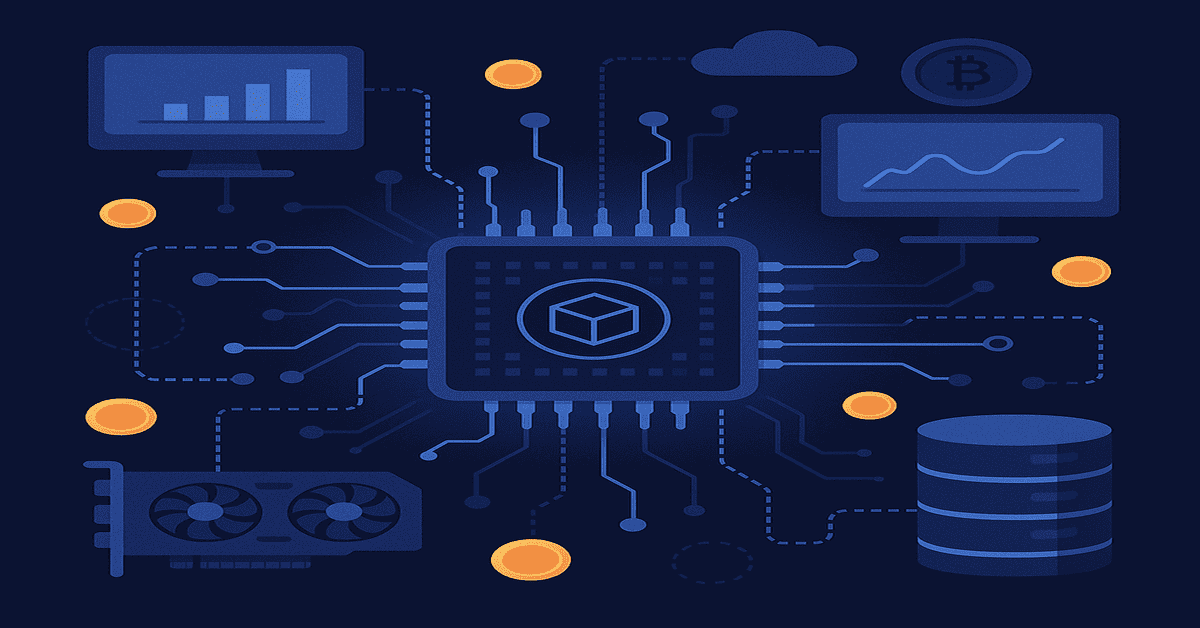
Applications of Decentralized Computing in Crypto"
1. What is Decentralized Computing?
Decentralized computing is a model where computing resources – such as CPU, GPU, memory, and storage – are distributed across a network of devices instead of being controlled by a central server. Each node in the network can contribute resources and receive rewards for completing tasks.
This model plays a vital role in decentralized applications (dApps), ensuring transparency, security, and the elimination of third-party dependencies.
2. How It Works
Decentralized computing works by breaking down computational tasks into smaller units, distributing them to network nodes for processing, and then aggregating the results.
Key benefits include:
-
Efficient resource usage: Reduces waste by leveraging idle devices.
-
Censorship resistance: No central point of control makes manipulation difficult.
-
Lower costs: Eliminates reliance on expensive infrastructure from tech giants.
-
Enhanced security: Data and results are verified and stored across distributed systems.
The rise of AI and machine learning has also driven demand for distributed computing. These ecosystems are often powered by tokens: users pay to use the service, and resource providers earn tokens as rewards.
3. Typical Applications
-
Decentralized cloud computing: Offers computing power for tasks like graphics rendering, 3D simulation, and running heavy applications on a global network.
-
Decentralized machine learning: Trains AI models without a central system, enabling multiple contributors to provide computing power.
-
zkML (zero-knowledge machine learning): Combines AI with zero-knowledge proofs to preserve privacy while allowing result verification.
4. Notable Projects
-
Render Network (RNDR): A decentralized rendering system for images, videos, and complex 3D graphics.
-
RISC Zero: Provides a secure application environment using zero-knowledge proof technology.
-
Bittensor (TAO): A decentralized AI network that enables model training and sharing.
-
Gensyn: A decentralized infrastructure for AI computing that operates without intermediaries.
-
Axiom: Integrates decentralized coprocessing tools into blockchain for secure and efficient computation.